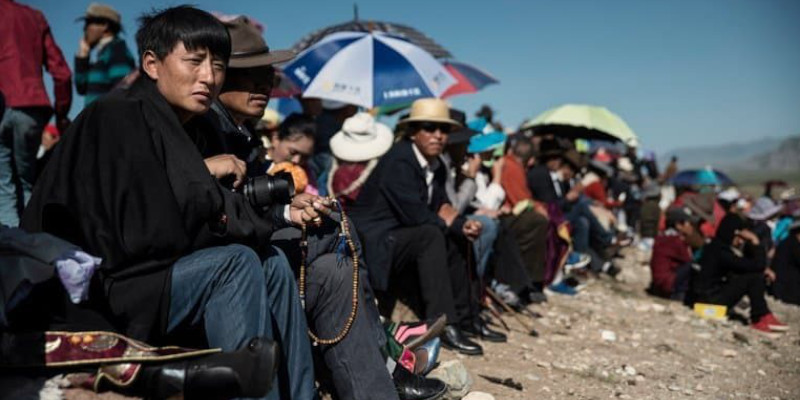Tibetan Business man who was arrested for campaigning in favour of Tibetan language education in Tibet was released after completing five year term. However, despite the news of his release, there has been no formal contact with the Tibetan activist and it raises the concern whether he is actually free even after completing his five years term for false charges of inciting separatism.
Tashi Wangchuk was detained in the beginning of 2016 after he featured in a video and article by the New York Times wherein he explains his journey from Tibet to Beijing secure a legal system to ensure right for Tibetan children to learn Tibetan language. He was detained for two years before appearing in a court and finally charged him of “inciting separatism” and in May 2018 was sentenced to five years in prison.
According to the New York Times, Tashi Wangchuk, returned to Yushu, his hometown in the northwestern province of Qinghai, and was staying with a sister, the lawyer, Liang Xiaojun, said on Twitter and in a telephone interview. But Mr. Liang said he could not be sure that Mr. Tashi was “fully free.” The report further quoted that the lawyer has not even get a picture of him yet!
“I don’t think there’s any doubt that he is out,” Mr. Liang said in the interview, citing a phone call he had with Mr. Tashi’s brother-in-law. “His brother-in-law said that he’s in good health, but I haven’t been sent any pictures of him yet,” Mr. Liang said, according to the New York Times. “That may be because he’s still not too free.”
Despite sharp criticism from international rights groups over the sentencing of Tashi Wangchuk, he was repeatedly tortured while being interrogated during his early days in detention, endured threats to the safety of his family, and was denied the right to see legal representatives on multiple occasions—both prior to and after his trial, as per the Radio Free Asia report. The President of Tibetan Government in Exile stated that this is example of the severe retributions that tens of thousands of Tibetans who advocate for Tibetan cultural and language rights face in China-occupied Tibet.







Leave a Reply